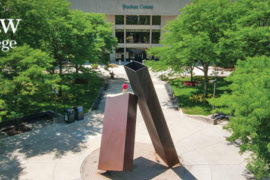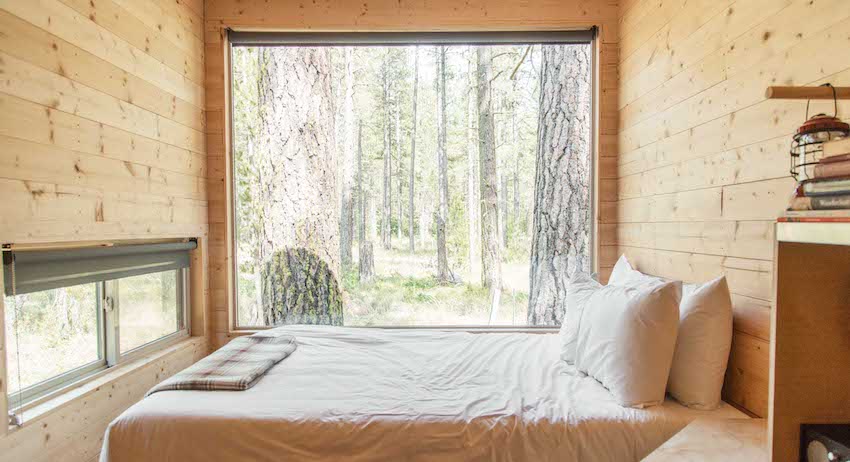If you told Michigan residents that for just $1 a month they could enjoy vehicle access to more than 100 state parks and recreation areas, 140 state forest campgrounds, hundreds of miles of state trails, historic sites, family-friendly events, hundreds of boating access sites and other outdoor spaces, most likely would jump at the chance. Starting March 1, they can.
The Michigan Department of Natural Resources today announced that the regular Recreation Passport vehicle entry fee for residents will increase from $11 to $12 – the first Recreation Passport price increase since January 2013. All other resident Passport fees stay the same, including those for motorcycles, mopeds and commercial vehicles.
The change is due to a statutory provision to adjust the Recreation Passport fee based upon the Consumer Price Index as determined by the federal Bureau of Labor Statistics. That statutory requirement was put into law when the Recreation Passport funding model was created in 2010 to ensure the funding source keeps pace with inflation.
DNR Parks and Recreation Chief Ron Olson said it isn’t widely known that Michigan state parks are largely self-supporting. The steady growth in Recreation Passport revenue has been a key part in helping the department tackle some high-priority areas.
“Although we were not anticipating a $1 increase this year, the additional revenue will help fill in funding gaps,” Olson said. “We are continually working on challenges including rising wages, the ever-increasing cost of goods and services and $278 million worth of significant infrastructure repairs and projects.”
Approximately 93.5 percent of state parks funding is generated by user fees and royalty revenues:
- Camping and lodging reservation fees provide 47 percent.
- Recreation Passport sales offer 26 percent.
- Gas and mineral royalty revenues provide 15 percent.
- Concessions, shelter reservations and other revenue sources bring in another 5.5 percent.
The remaining funding – approximately 6.5 percent – is provided from miscellaneous sources (including general tax dollars).
Recreation Passport back story
In 2004, state parks were removed from the state’s general fund because it was believed that camping fees could sustain the then 99-park system. As a result, revenue generated by motor vehicle stickers and camping fees became even more critical.
The Citizens Advisory Committee for Michigan State Parks, created in 2005, was charged with finding a long-term funding solution that would 1) address the nearly $300 million backlog of infrastructure needs, and 2) ensure that Michiganders could affordably continue using the parks. The committee ultimately recommended the creation of the model linking motor vehicle registrations to the Recreation Passport.
“Those early conversations and research done by the citizens committee and many DNR employees laid the foundation for today’s Recreation Passport,” Olson said. “These were important steps in the right direction.”
The next few years made it clear that the existing funding model could not keep the state parks and recreation system afloat. Work on the new Recreation Passport funding model began in earnest, supported by bipartisan cooperation in the state House and the Senate, and the Recreation Passport bill was signed into law in April 2010 and took effect six months later.
Recreation Passport rationale, structure
The Recreation Passport model is based both on reducing the customer’s cost and tying the purchase of a park pass to the Secretary of State’s vehicle registration process. The change relied on the notion that more people would buy the new Recreation Passport than would purchase the existing motor vehicle permit because:
- The Recreation Passport purchase option would be put in front of every vehicle owner (rather than just those who visited state parks and bought the motor vehicle permit there).
- The Recreation Passport (then $10) cost significantly less than the motor vehicle permit ($24).
During the Recreation Passport’s first year, an additional $7 million was generated.
All revenue generated by Recreation Passport sales goes into a restricted fund that supports state park infrastructure and operations, a local grant program for community recreation agencies, state forest campgrounds and nonmotorized pathways and trails, cultural and historic resource restoration, and marketing and promotion.
Nonresident Recreation Passport fee
The Consumer Price Index change also signaled a one-dollar increase – from $33 to $34 – for nonresident Recreation Passport purchases, effective Jan. 1, 2020. All other passport fees will stay the same.
The start dates for the increase to both residents and nonresidents are staggered due to the time it takes to integrate changes tied to vehicle registration.
Learn more about how the Recreation Passport supports, protects and provides easy, affordable access to the great outdoors HERE









